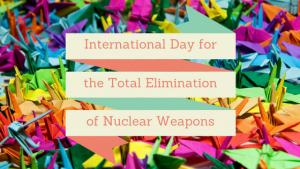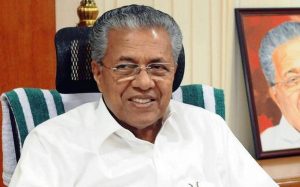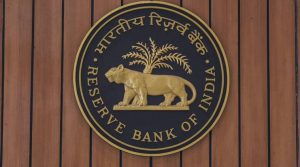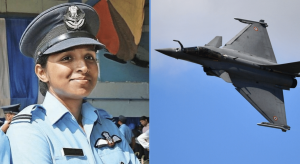
Monday, September 28, 2020
THE HINDU NEWSPAPER IMPORTANT ARTICLES 28.09.2020

IASToppers Precharge 2020 Government Schemes and Polices PDF
IASToppers Precharge 2020 Government Schemes and Polices PDF
Sunday, September 27, 2020
THE HINDU NEWSPAPER IMPORTANT ARTICLES 27.09.2020
CAG Report
Why in news?
The latest audit of the Union Government’s accounts reveals that the Finance Ministry retained over 40% of all cess collections in 2018-19.
How much was retained?
- The Finance Ministry retained the cess collections in the Consolidated Fund of India (CFI).
- As many as 35 different cesses, levies and charges yielded ₹2.75-lakh crore in the year.
- But only ₹1.64-lakh crore was remitted to the specific reserve funds for which these cesses were levied.
What does this reveal?
Saturday, September 26, 2020
Daily Current Affairs, 26th September 2020

1) World Environmental Health Day: 26 September

•World Environmental Health Day is observed globally on 26th September every year. This day is celebrated to shed the light on important work of environmental health around the world. The Theme for the 2020 World Environmental Health Day: Environmental health, a key public health intervention in disease pandemic prevention.
2) Nation observes Antyodaya Divas on 25 September

•India observes Antyodaya Diwas on 25th September every year. This day is celebrated to mark the birth anniversary of Pandit Deendayal Upadhyaya. The day was declared by the Modi Government on September 25, 2014. Antyodaya means uplifting the poorest of the poor.
3) International Day for the Total Elimination of Nuclear Weapons

•The United Nations observes 26 September every year as the International Day for the Total Elimination of Nuclear Weapons. The day provides an occasion for the world community to reaffirm its commitment to global nuclear disarmament as a priority. It provides an opportunity to educate the public and their leaders about the real benefits of eliminating such weapons, and the social and economic costs of perpetuating them.
4) Uttar Pradesh Govt launches unified portal ‘U-Rise’

•The Uttar Pradesh Chief Minister, Yogi Adityanath has launched a unified portal called ‘U-Rise’. Uttar Pradesh is the first state to launch such a unified portal along with the implementation of the National Education Policy (NEP)-2020.
5) Kerala wins UNIATF award for prevention and control of NCD 2020

•Kerala has won the United Nations Inter-Agency Task Force on the Prevention and Control of Noncommunicable Diseases Awards 2020 for its “outstanding contribution” towards the non-communicable diseases-related sustainable development goals. Kerala has been awarded for the tireless service of the state in the health sector. This is the first time for Kerala to be recognised by this annual UN Award and along with Kerala 6 other health ministries across the globe have won the 2020 UNIATF Award.
6) RBI publishes “’Technology Vision for Cyber Security’ for UCBs

The Reserve Bank of India (RBI) will implement the “Technology Vision for Cyber Security’ for Urban Co-operative Banks (2020-2023) to enhance the IT security system of Urban Co-operative banking to prevent, detect, respond to and recover from cyber-attacks.
The Technology Vision Document aims at enhancing the cybersecurity posture of the Urban Co-operative banking sector against evolving IT and cyber threat environment. RBI will achieve this objective using its five-pillared strategic approach ‘GUARD’. GUARD denotes:
G – Governance Oversight,
U – Utile Technology Investment,
A – Appropriate Regulation and Supervision,
R – Robust Collaboration
D – Developing necessary IT, cybersecurity skills set.
To accomplish the five pillared approach, RBI has established 12 specific action points spires to:
•Involve more Board Oversight over Cybersecurity.
•Enable UCBs to better manage and secure their IT Assets.
•Implement an offsite supervisory mechanism framework for UCBs on cybersecurity-related controls.
•Develop a forum for UCBs so that they can share best practices and discuss practical issues and challenges.
•Implement a framework for providing awareness/ training for all UCBs.
The cybersecurity landscape will continue to evolve with the wider adoption of digital banking channels, thus necessitating the UCBs to manage the associated risks effectively. Active collaboration within UCBs and their stakeholders would be necessary for sharing and coordinating various measures taken on cybersecurity aspects. The implementation of this Technology Vision document will strengthen the cyber resilience of the Urban Co-operative Banks.
7) India ranked 89th in World Risk Report 2020

•According to the World Risk Index (WRI) 2020, India has been ranked at the 89th spot among 181 Countries. WRI has been developed in cooperation with the United Nations University’s Institute for Environment and Human Security (UNUEHS) and calculated by the International Law of Peace and Armed Conflict (IFHV).
•India is behind Sri Lanka, Bhutan and Maldives in terms of abilities to cope with extreme disasters, lack of adaptive capacities and the preparedness to deal with extreme events. According to the report, the Global Hotspots are in Oceania, South East Asia, Central America, West and Central Africa.
8) Shivangi Singh set to become India’s 1st woman fighter pilot to fly Rafale

•Flight Lieutenant, Shivangi Singh to become the first woman fighter pilot of India to fly the Rafale combat aircraft that was formally inducted into the Indian Air Force(IAF) September 10, 2020. She is one of the 10 Indian women fighter pilots in IAF. Five Rafale Aircraft were formally inducted into the IAF’s 17 Squadron ‘Golden Arrows’ on September 10, 2020, at a function held at Air Force Station, Ambala (Haryana).
The HINDU Notes – 26th September 2020



